Zhejiang Province, abbreviated as “Zhe,” is located along China’s southeastern coast in the southern part of the Yangtze River Delta. Known for its economic vitality, it is one of the wealthiest and most developed provinces in the country. The capital city, Hangzhou, is world-renowned for its scenic beauty, while other cities like Ningbo, Wenzhou, and Shaoxing each offer their own charm and cultural depth.
With a diverse landscape of mountains, rivers, lakes, and coastal areas, Zhejiang blends natural beauty with rich historical heritage. The province is shaped by both ancient traditions and modern innovation, making it one of the most popular travel destinations in China for both domestic and international visitors.
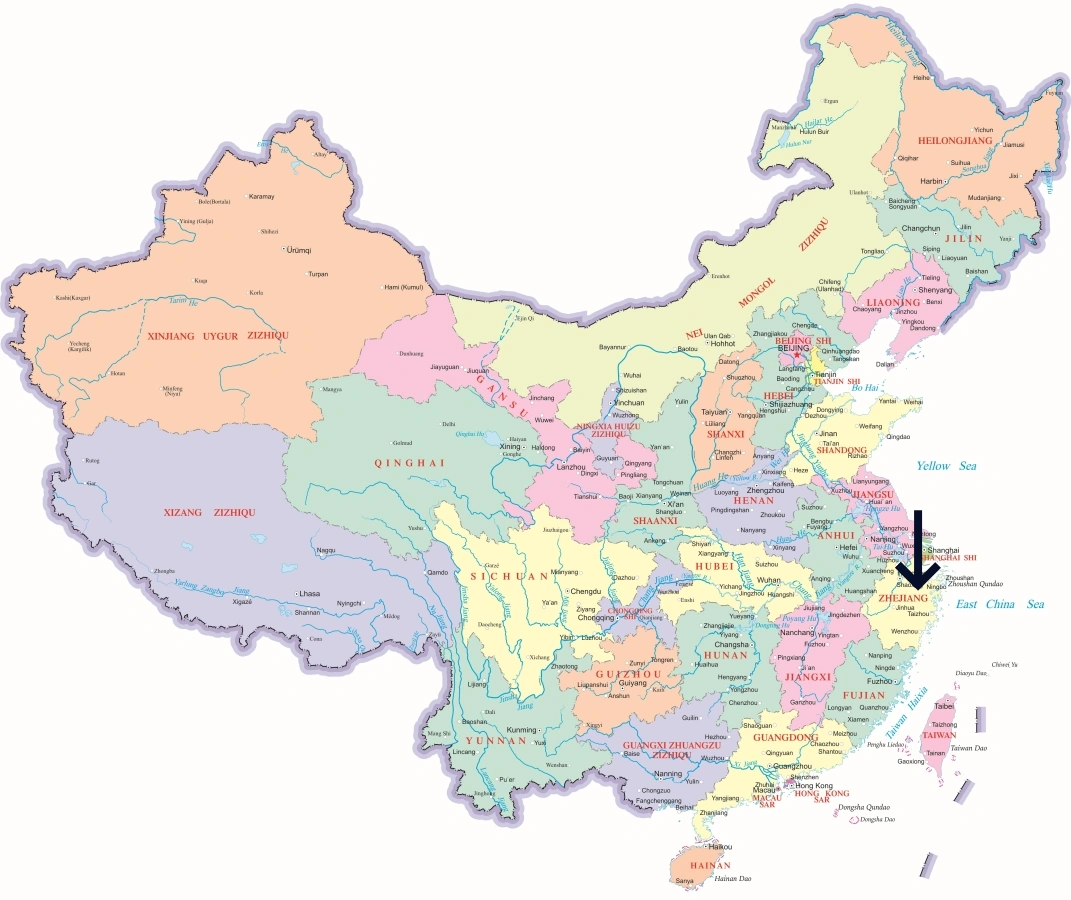
Zhejiang is divided into 11 prefecture-level cities, each with distinct cultural identities and historical backgrounds. Whether you’re looking to explore ancient towns, relax by the sea, or experience bustling city life, Zhejiang has it all.
Hangzhou, Ningbo, Shaoxing, Wenzhou, and Zhoushan are the top picks for travelers. However, places like Jinhua, Jiaxing, Huzhou, Taizhou, Lishui, and Quzhou are equally fascinating, offering everything from ancient architecture to untouched nature.
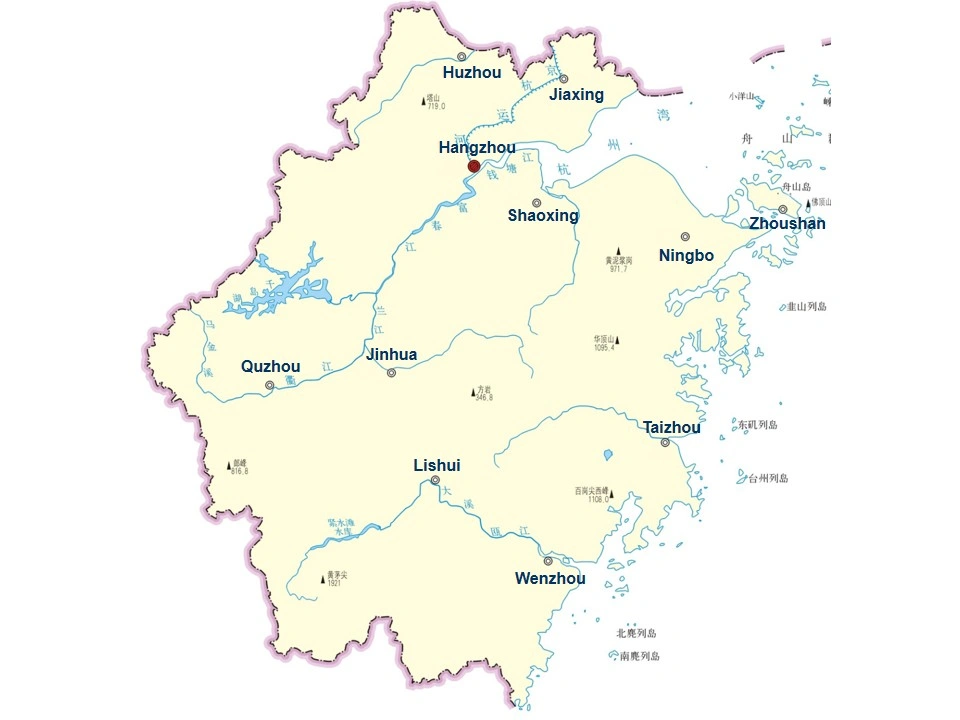
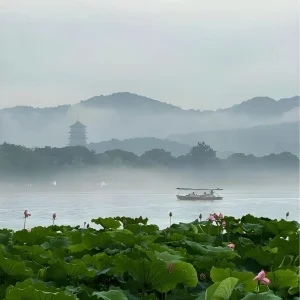
The provincial capital and one of China’s seven ancient capitals. Best known for West Lake, it also features Lingyin Temple, tea plantations, and the scenic Thousand Islands Lake. Hangzhou combines natural elegance with cultural richness.
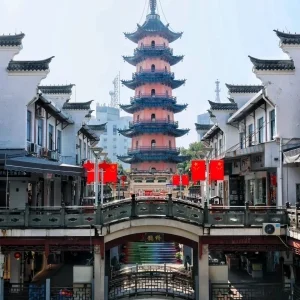
A major port city with a maritime history dating back to the Tang Dynasty. Home to Tianyi Pavilion, the oldest private library in Asia, and tranquil East Lake. Ningbo is modern yet steeped in tradition.
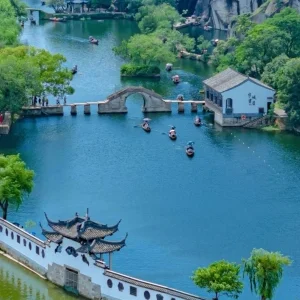
A quintessential water town with canals, stone bridges, and black-awning boats. It’s also the hometown of Lu Xun, one of China’s most influential writers. Ideal for literature lovers and cultural explorers.
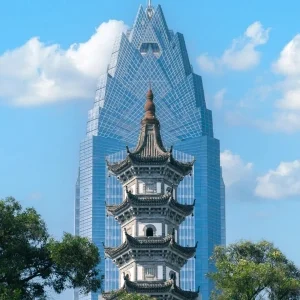
Located in southeastern Zhejiang, this dynamic city is known for its thriving private economy and scenic spots like Yandang Mountain and Nanxi River. A perfect blend of business and nature.

China’s largest archipelago city. Pilgrims flock to Mount Putuo, one of Chinese Buddhism’s holiest sites. The islands also offer pristine beaches, fishing villages, and fresh seafood.
Zhejiang’s attractions are as diverse as its geography. From sacred Buddhist mountains to photogenic ancient towns, this province offers experiences for every kind of traveler.
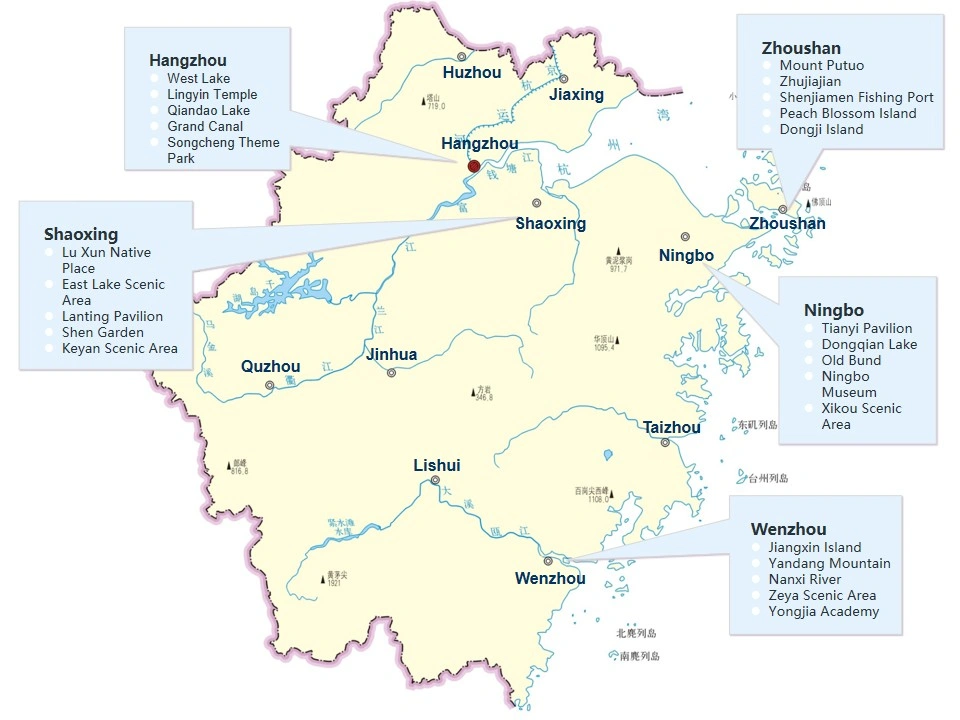
-300x300.webp)
A UNESCO World Heritage Site surrounded by gardens, pagodas, and temples. Don’t miss the iconic Broken Bridge, Su Causeway, or a sunset boat ride.
-300x300.webp)
One of the Four Sacred Buddhist Mountains in China. Its serene atmosphere and centuries-old temples make it a must-visit for spiritual travelers.
-300x300.webp)
Step into the life of China’s literary giant. The area preserves Ming and Qing dynasty architecture, offering a glimpse into old-world China.
-300x300.webp)
Famous for its crystal-clear waters and lush islands. Popular for cycling, kayaking, and island-hopping tours.
-300x300.webp)
A national 5A-level scenic area known for bizarre rock formations, waterfalls, and deep valleys. Great for hiking and photography.
-300x300.webp)
One of China’s most well-preserved ancient towns. Lantern-lit canals, traditional opera, and riverside cafés create an unforgettable experience.
-300x300.webp)
The easternmost inhabited island of China. A paradise for sunrise chasers, drone enthusiasts, and anyone craving coastal seclusion.
Zhejiang cuisine, also known as “Zhe Cai,” is one of China’s Eight Great Culinary Traditions. It’s known for its emphasis on freshness, delicate flavors, and artful presentation. Regional styles include Hangzhou cuisine, Ningbo seafood, and Shaoxing’s rice wine specialties.
-300x300.webp)
A tangy-sweet dish made with fresh grass carp, known for its silky texture and fragrant sauce.
-300x300.webp)
Braised pork belly named after the Song Dynasty poet Su Dongpo. Tender, rich, and comforting.
-300x300.webp)
Glutinous rice balls filled with sesame paste. Served in sweet broth, they are chewy and warming.
-300x300.webp)
Poached chicken marinated in local rice wine. Served cold, it’s aromatic and juicy.
-300x300.webp)
Springy on the outside with a savory filling. A staple street food in southeastern Zhejiang.
-300x300.webp)
Simple yet flavorful. This dish captures the freshness of river fish with minimal seasoning.
Zhejiang covers about 101,800 square kilometers with a population of around 65 million. Below are city-level stats (as of 2023):
Hangzhou: 16,853 km², approx. 12 million people
Ningbo: 9,816 km², approx. 9.5 million people
Wenzhou: 11,784 km², approx. 9.3 million people
Jiaxing: 3,915 km², approx. 4.7 million people
Huzhou: 5,818 km², approx. 3.1 million people
Shaoxing: 8,279 km², approx. 5.1 million people
Jinhua: 10,942 km², approx. 5.7 million people
Quzhou: 8,844 km², approx. 2.3 million people
Taizhou: 9,411 km², approx. 6.1 million people
Lishui: 17,293 km², approx. 2.5 million people
Zhoushan: 1,440 km² (island-based), approx. 1.2 million people
Note: Population figures are based on recent estimates and may vary slightly.
Zhejiang has a humid subtropical climate with four distinct seasons. Summers are hot and wet, while winters are cool and damp. Here’s a quick look at average monthly weather (using Hangzhou as a reference):
January: 2–9°C (cold and damp, occasional frost)
February: 4–11°C (slightly warmer, still chilly)
March: 7–15°C (spring starts, ideal for flower viewing)
April: 12–22°C (pleasant and green)
May: 17–26°C (perfect for sightseeing)
June: 21–29°C (rainy season, pack waterproof gear)
July: 26–34°C (hottest month, high humidity)
August: 26–33°C (hot with thunderstorms)
September: 21–28°C (mild and breezy)
October: 16–25°C (cool and dry, best time to travel)
November: 10–18°C (chilly mornings, warm afternoons)
December: 4–11°C (cold and cloudy)
Best times to visit: Spring (March to May) and Autumn (September to November).
Here’s a quick reference for major cities in Zhejiang:
Hangzhou: Postal Code 310000, Area Code 0571
Ningbo: Postal Code 315000, Area Code 0574
Wenzhou: Postal Code 325000, Area Code 0577
Jiaxing: Postal Code 314000, Area Code 0573
Huzhou: Postal Code 313000, Area Code 0572
Shaoxing: Postal Code 312000, Area Code 0575
Jinhua: Postal Code 321000, Area Code 0579
Quzhou: Postal Code 324000, Area Code 0570
Taizhou: Postal Code 318000, Area Code 0576
Lishui: Postal Code 323000, Area Code 0578
Zhoushan: Postal Code 316000, Area Code 0580

 English (Singapore)
English (Singapore)